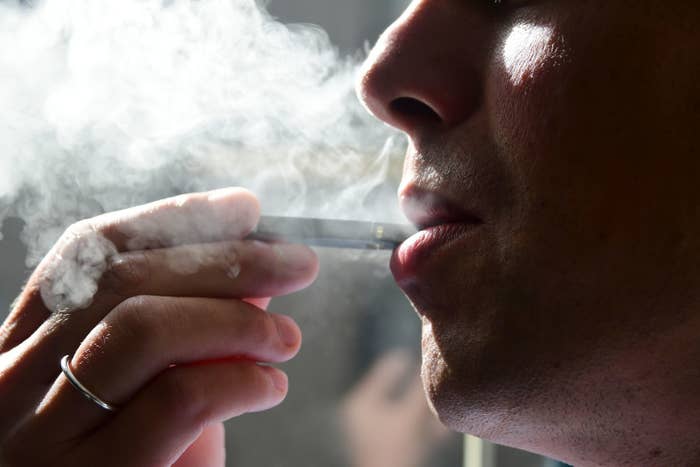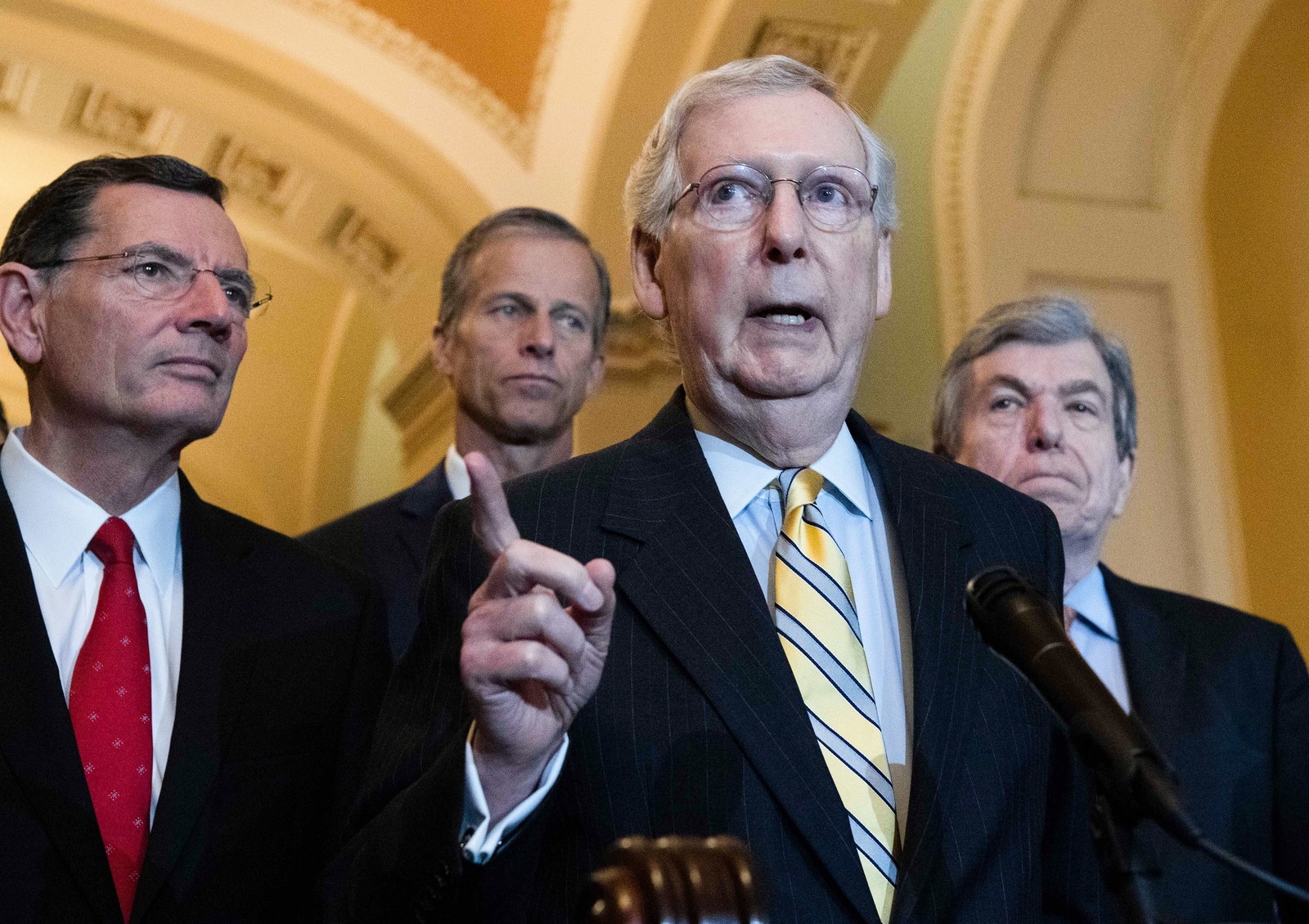
WASHINGTON — On first glance it seems like a huge win for anti-smoking activists: a bipartisan bill to raise the minimum age for purchasing tobacco up to 21, introduced by the most powerful man in Congress.
But anti-smoking groups are raising concerns that a bipartisan bill backed by Senate Majority Leader Mitch McConnell is drafted in such a way that it could reverse tobacco control measures passed by local governments. McConnell introduced the bill with Sen. Tim Kaine, a Democrat from Virginia.
The Tobacco-Free Youth Act is pitched as a response to the massive spike in vaping by school-age children, which McConnell called a “public health epidemic.” The bill requires all states to pass their own legislation raising the purchasing age of tobacco and vape products to 21, or else they will not receive federal grants for prevention and treatment of substance abuse.
The tobacco company Altria, which owns a one-third stake in Juul Labs and their wildly popular vaping products, supports this so-called Tobacco 21 movement of a nationwide limit. But what has anti-smoking activists worried is that Altria and Juul have repeatedly deployed lobbyists at the state level to push for state laws that can carve out protections for the industry or even block cities from passing stricter reforms.
When Arkansas raised its legal limit for purchasing tobacco to 21, the legislation contained a clause blocking any county, municipality, or other level of government from passing regulations on “the manufacture, sale, storage or distribution of tobacco products” that are more restrictive than the state law.
This was a blow to anti-smoking advocates, who are pushing for much more drastic changes than just raising the legal limit for purchasing. Their wish list includes banning flavored tobacco and vaping products, tobacco and vaping advertisements directed at youths, and online sales of vaping products.
Multiple anti-smoking groups told BuzzFeed News they had concerns that the McConnell legislation will set up a series of state-level battles that could end in laws blocking local anti-smoking initiatives.
“It creates the opportunity to push for undoing,” said Gregg Haifley, director of federal relations at the American Cancer Society’s advocacy arm, Cancer Action Network. “It gives the industry an opportunity in every state that doesn’t already have a Tobacco 21 law to muck around in that legislation, as they always do when given the opportunity.”
The American Cancer Society was publicly supportive of the bill and it said was "one of several important federal policy changes" necessary to ensure young Americans do not become addicted to tobacco products.
Raising the age of sale of tobacco from 18 to 21 is one step Congress can take to curb increasing rates of youth tobacco use. ACS CAN supports the Tobacco-Free Youth Act but the bill must remain free of any carveouts at the request of the tobacco industry. https://t.co/6VIQftzDJX
But Haifley called the section of McConnell's bill that requires states to pass their own laws a “favor” to the tobacco industry. He and other advocates are encouraging Congress to take up an alternative, such as a bill from Sens. Brian Schatz and Todd Young that just raises the federal limit, or a House bill from Rep. Frank Pallone that goes further with a list of measures like requiring graphic public health warnings on cigarette packages.

McConnell’s office pointed to his Senate floor speech Wednesday, where he said that the bill is crafted to let states to decide their own standards. “It’s a bill designed with the states in mind and it would allow states to take measures even more restrictive than the federal law if they choose,” he said.
Kaine steadfastly rejected the idea that their legislation was industry-friendly. He said that raising the federal limit would only provide enforcement by federal agencies, while pushing states to pass their own laws allows for more robust enforcement by state and city governments.
“I’ve worked on these enforcement issues at the state and local level," he said. "The state doesn’t enforce federal immigration laws, the state doesn’t enforce the ATF laws. Cities don’t either. Why not make the enforcement mechanism as powerful as you can?”
Kaine said he supported more extensive regulations akin to what is in the House bill, but that he does not believe they would get enough votes to pass the Senate.
UPDATE
This post has been updated to say the American Cancer Society was publicly supportive of the bill.

